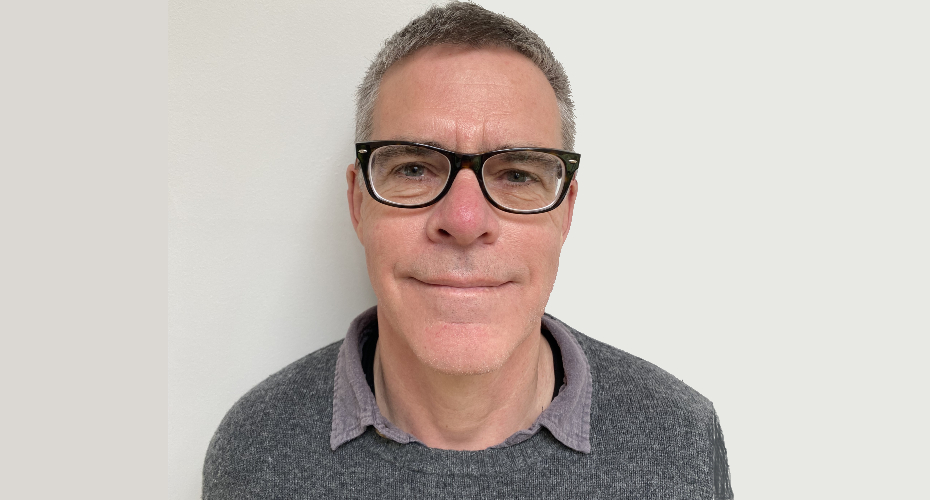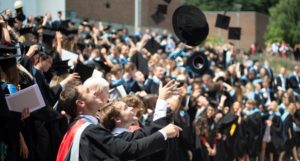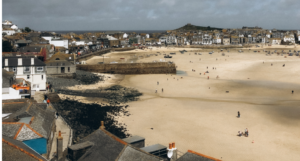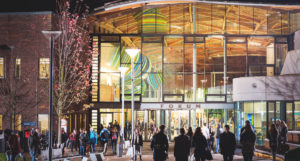Penryn Perspectives: Professor David Hosken

“I guess you could say we were a bit feral in those early days!”
Professor David Hosken
David Hosken is Professor of Evolutionary Biology, and Deputy Pro-Vice-Chancellor for the Faculty of Environment, Science and Economy. David joined the University in 2004, having spent the formative years of his scientific career at institutions in Australia, Switzerland, Germany and the United States of America. Growing up in Western Australia, David became interested in science through the documentaries of Sir David Attenborough, and is now internationally renowned for his work in sexual selection and sexual conflict. During his two-decade tenure at the University, David was a former Director of the Centre for Ecology and Conservation, and was Pro Vice-Chancellor and Dean of Strategic Development at the Penryn campus.
In this, our eleventh in the Penryn Perspectives, David takes a fittingly evolutionary view of his time with the University, and how a new generation is poised to lead the CEC into the future.
“I was working in Zurich, and a couple of colleagues (Tom Tregenza and Nina Wedell) who had come over to do some collaborative work pointed out that there was a university opening in Cornwall. I didn’t know anything about Cornwall back then – although the Hosken name came from the village of Gulval, from where my father’s side of the family had emigrated to Australia in the 1800s. I didn’t know much about Exeter or the UK either really, but I was coming to the end of my fixed-term post, and so applied for a post at Exeter.
“We were all young, up-and-coming evolutionary biologists of one form or another and so we all applied. And we were successful, with me joining the Centre for Ecology and Conservation as part of the second round of recruitment for posts four, five and six (along with Dave Hodgson and Sasha Dall) and Tom and Nina joining about 12 months later.
“When we were brought down to see the campus it was just a construction site and for the first four months, I had to work from home as my office wasn’t ready. I guess you could say that we were all a bit ‘feral’ in those early days – we just got on with doing things without really understanding why they might need to be done in a certain way. Without knowing the rules, we sort of invented them, and that was fun.
“I think the ethos was ‘hire smart people who are really good scientists’. We’d followed the All Blacks rugby rule without knowing it, that of ‘you’ve got to be really good at rugby, but you can’t be a jerk!’. Be a professional scientist but be a professional human being as well. There’s a lot to be said for the way the first three permanent staff – Brendan Godley, Matthew Evans and David Bryant – set a tone, and we followed that tone without really being conscious of doing so.
“The campus, has, of course, changed massively since I joined. And, because of the roles I’ve had in the last ten or so years, I’ve been quite involved in some of those developments. It’s been exciting and challenging in terms thinking about what the most important next thing is, and how you accommodate needs and finance them. It’s always fun to see how things fit together. And it’s great when people who used to work or study here return and you see their reaction and it’s “oh my god!”. We have come on leaps and bounds, even if institutionally, we’re still working out how best to “sell Penryn”. What’s interesting is that everyone who comes here gets bitten by what we’ve got. Lots of our students stay on, we’ve got low staff turnover, so there’s clearly a good thing going.
“My personal scientific development since I’ve been here has been off-the-charts. If I had gone somewhere else, I don’t think I’d be half as good – and definitely not without the people around me. There are some incredibly smart people here, who are happy to talk to you about science: people who open your eyes to things; people who challenge the way you think about things; and people who just teach you stuff. Honestly, my colleagues…they’ve been amazing. On this crazy journey I’ve had in academia, I wish I’d known all the things I do now just a little bit earlier. I could have been a pretty good scientist if I had.
“I’m really pleased to have been a part of making this place what it is and many other colleagues have put their shoulder to the wheel in that development too. I think it’s interesting that some of the pioneers, if you like, we’re getting to the end of our usefulness and there’s a group of people following on who are cast very much in the original mould. They’re good people, they’re really good scientists and they have a clear idea of what they want the place to look like next. I think the fun part over the next few years or so will be passing over the reins to that next cohort and watching them build on what’s there.
“And then, in 20 years’ time, to come back and see what it all looks like.”



